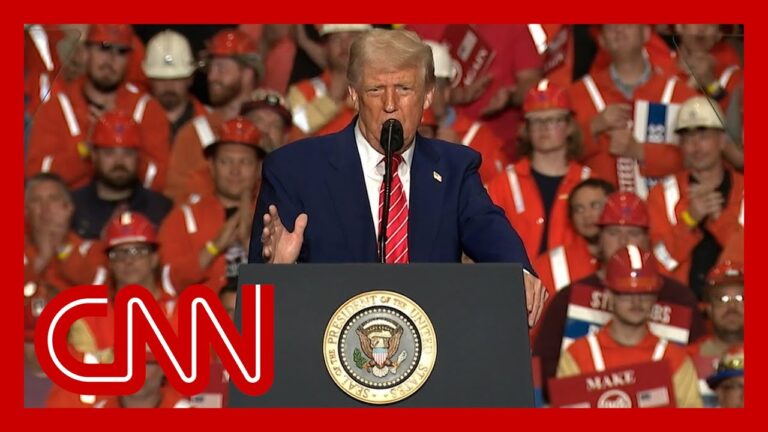Video at the bottom!
In a recent speech in West Mifflin, Pennsylvania, President Trump underscored his desire for American infrastructure to be built with strong domestic materials rather than subpar imports. He announced a new agreement between U.S. Steel and Nippon Steel, highlighting the significance of revitalizing American steel production.
In a surprising twist, Trump also declared an increase in tariffs on steel and aluminum imports, raising the rate from 25% to 50%. This announcement raised eyebrows, as it signaled a significant escalation in trade policy. Kaitlan Collins from CNN, who covered the event, noted the mixed reactions surrounding the tariff increase, as it could have widespread implications for U.S. manufacturers reliant on steel.
Economist Stephen Moore weighed in, expressing support for the deal with Nippon Steel, seeing it as beneficial for both American labor and the Japanese firm. However, he raised concerns regarding the impact of the higher tariffs, noting that previous tariffs under Trump’s administration resulted in job losses in industries that depend on steel.
The discussion also touched on broader economic concerns, particularly regarding international trade dynamics, especially with China. Moore emphasized the need for the U.S. to maintain a competitive edge in the global economy while addressing domestic challenges such as education and workforce training.
As the conversation evolved, attention turned to the potential for diplomatic engagements between the U.S. and China, with the importance of optics highlighted should such discussions occur. The changing landscape of international relations and trade policy continues to shape discourse in the lead-up to critical economic decisions.


